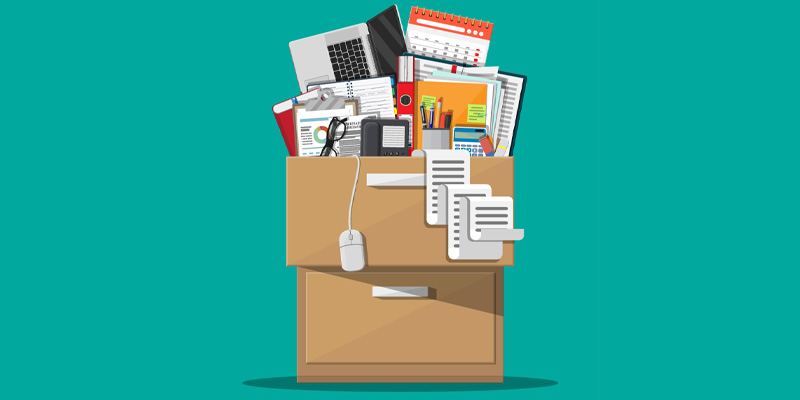Contents
6 Organizational Hacks Every Lawyer Should Know
Lawyers juggle multiple cases, piles of documents, and tight deadlines, making a solid system essential for keeping things running smoothly and avoiding mistakes. When you are organized, you can quickly find important information, respond faster to clients, and stay on top of deadlines. It also helps you balance your workload, making it easier to manage stress and avoid burnout.
But organization does more than just boost personal productivity—it enhances team collaboration, keeps you in compliance with regulations, and lowers the chances of making costly errors. By staying organized, lawyers can run more efficient practices, deliver top-notch service to their clients, and set themselves up for better outcomes all around. Effective organization for lawyers is essential for managing multiple cases, meeting deadlines, and maintaining a high level of client service while reducing stress and avoiding costly mistakes.
Why Organization Matters
Organization is essential for success in the legal profession, where lawyers juggle multiple cases, deadlines, and extensive documentation. An organized system enables quick access to case files and relevant information, enhancing efficiency and reducing errors. It also improves client service by facilitating timely responses and accurate information.
Effective time management is another crucial benefit, allowing lawyers to meet deadlines and maintain a better work-life balance. Organization is a key tool in mitigating risks related to missed deadlines and compliance issues, significantly reducing the likelihood of malpractice claims and their associated costs.
Organization enhances collaboration and communication within law firms, enabling better coordination among team members. Furthermore, organized research materials support compelling legal arguments, while a consistent approach to documentation maintains professionalism.
Being organized fosters professional development by allowing lawyers to track progress and identify areas for improvement. Overall, prioritizing organization leads to increased efficiency, client satisfaction, and better outcomes in legal practice.

Why Lawyers Face Organizational Challenges
Lawyers face significant organizational challenges due to the demanding nature of their profession, which involves juggling multiple responsibilities. These include managing numerous cases, conducting extensive legal research, meeting with clients, and handling administrative tasks. Case management adds further complexity, with lawyers needing to track documents, deadlines, and communications across various cases. Time management is another critical challenge, as lawyers must meet strict deadlines while balancing court appearances, client meetings, and other responsibilities.
Financial management can also become cumbersome without proper systems to track billable hours, manage invoices, and handle payments. Clear and consistent client communication is crucial, yet it can easily break down without an organized approach to tracking interactions. Many lawyers still need to rely on updated technology like paper files, which slows down processes and complicates document management.
In larger firms, the collaboration with paralegals, associates, and staff is a key part of the work. To ensure smooth operations, clear workflows and communication are essential. Without these, confusion and miscommunication can easily arise. However, these organizational challenges can be mitigated by adopting modern legal practice management software, streamlining workflows, delegating tasks effectively, and implementing better time management strategies. Such improvements help lawyers operate more efficiently and reduce the stress associated with their profession.
6 Organizational Hacks Every Lawyer Should Know
Lawyers are no strangers to juggling multiple cases, looming deadlines, and the constant pressure to meet client expectations. In a field that moves fast, staying organized is not just a good idea—it is a necessity. A few smart organizational hackes can make all the difference, helping you streamline your tasks, work more efficiently, and reduce stress. Here are six practical tips every lawyer should know to stay ahead of the curve.
1- Use Legal-Specific Task Management Tools
While general project management tools like Trello or Asana are widely used, lawyers should consider legal-specific task management platforms that cater to their unique needs. Tools like RunSensible provide features explicitly designed for the legal profession, including case deadline management, task automation, and billable hour tracking. These platforms allow seamless integration of calendars, to-do lists, and case timelines, ensuring that important dates and tasks are always organized.
By setting up automatic reminders for critical tasks like court appearances or filing deadlines, you can easily stay on top of your schedule. These reminders help prevent last-minute rushes and reduce the risk of missing important deadlines, allowing for smoother and more efficient case management. Implementing better organization for lawyers leads to a smoother workflow, allowing them to focus more on legal strategy and less on administrative tasks.
2- Create Standardized Templates
Efficiency in a law practice is often achieved by minimizing repetitive tasks, and one effective way to do this is through using templates. Lawyers can save valuable time by creating a library of templates for frequently used legal documents, such as client intake forms, motions, briefs, and contracts. Rather than drafting each document from scratch, these pre-made templates streamline the process, allowing for quicker and more efficient work.
Standardizing these documents saves time, ensures consistency across cases, and reduces the risk of errors. Implementing legal document automation software like RunSensible can further enhance this efficiency. With automation tools, fields in the templates can be quickly populated with client-specific information, expediting the document preparation process even more.
To maintain the effectiveness of this system, it is essential to regularly update your templates to reflect any changes in laws or industry best practices. This helps ensure that all legal documents remain compliant and relevant to current standards.
Incorporating lawyer organization tips, such as creating standardized templates and regularly decluttering your workspace, can lead to more efficient case management and a clearer mind.
3- Implement a “Zero-Inbox” Email Policy
A cluttered inbox can quickly lead to disorganization, missed emails, and overlooked tasks. To avoid this, consider implementing a “zero-inbox” policy, where emails are organized and processed as they come in. This does not mean reading every email immediately but categorizing them based on the required action. For example, emails that need a response or action can be placed in an “Action Required” folder, while emails containing important information but not requiring immediate attention can be categorized as “Reference.” Emails that have already been addressed can be moved to an “Archived” folder for future reference.
RunSensible can make this process even more efficient. Its automation tools allow you to set up custom rules and filters, automatically sorting emails into specific folders based on their content or sender. You can also schedule reminders for emails that require follow-up, ensuring nothing falls through the cracks. Moreover, by integrating with other practice management tools within RunSensible, you can link emails directly to relevant cases or projects, streamlining your workflow and making it easier to track important communication.
Setting aside dedicated time each day to process your emails, rather than constantly checking your inbox, will enhance focus and productivity. With RunSensible’s organized inbox management, your law firm can maintain high efficiency and avoid missing critical tasks.
Overall, implementing simple lawyer organization tips, such as using legal-specific task management tools and adopting a zero-inbox policy, can significantly improve productivity and reduce stress in a busy law practice.
4- Leverage Cloud Storage for Document Management
As your practice grows, keeping physical files organized can become increasingly difficult. Transitioning to cloud storage offers a solution, providing secure access to case files, contracts, and legal research from anywhere, whether in the office or in court. While general platforms like Dropbox or Google Drive offer cloud storage, legal-specific solutions like RunSensible provide enhanced security, critical for maintaining client confidentiality.
To ensure efficiency, organize your digital files with a standardized folder structure. Creating folders by client, case, and specific document types makes it easier to locate documents quickly and keeps your files tidy and accessible. In addition, regularly backing up your cloud storage and using secure, encrypted platforms will help you comply with legal data privacy regulations, safeguarding sensitive client information.
5- Adopt a Time-Blocking Technique
Lawyers often need help with multiple tasks, leading to fragmented work sessions and reduced productivity. One effective strategy to combat this is time-blocking, where you set aside focused periods for specific tasks, such as reviewing case files, meeting with clients, or drafting briefs. Dedicating certain hours of your day to these tasks minimizes distractions and enhances your overall workflow.
For instance, you might block off your mornings for deep work, like drafting documents and reserve your afternoons for meetings or phone calls. Using calendar software to allocate time for each task visually helps create a structured schedule, making it easier to stay on track. Sticking to this schedule as closely as possible not only boosts productivity but also reduces the sense of overwhelm that often comes with a long to-do list.
6- Regularly Declutter Your Workspace for Enhanced Focus
A clutter-free workspace can greatly enhance focus, productivity, and mental clarity for lawyers, who often juggle multiple cases and deadlines. An organized office reduces stress by creating a calm environment, free from the visual chaos that can lead to overwhelming feelings. Lawyers can better concentrate on their tasks by eliminating unnecessary papers and items.
Decluttering reduces stress and improves efficiency. A tidy desk ensures that essential items are easily accessible, saving time searching for misplaced files or documents. This streamlined workflow increases productivity, enabling lawyers to focus more effectively on case preparation, client meetings, and legal research.
A well-maintained office also contributes to a professional appearance, particularly when meeting clients or colleagues. A clean, organized space reflects competence and reliability, while a cluttered desk may create a negative impression. Regularly tidying up your workspace improves your productivity and fosters trust and confidence in your abilities.
Lastly, decluttering supports mental clarity. Physical clutter can lead to mental clutter, making it harder to think clearly and stay organized. Keeping your workspace clean lets you maintain focus and approach complex legal tasks with a clear mind. Regular filing and daily clean-ups can sustain an organized environment, boosting efficiency and focus.
Disclaimer: The content provided on this blog is for informational purposes only and does not constitute legal, financial, or professional advice.







